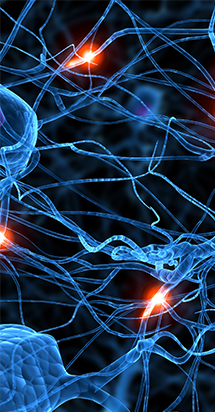May 2023
How to deal with expat depression
Living abroad is a fantastic opportunity for personal growth, to travel and gain insight into another culture, but expat life can present a unique set of challenges.
Expat mental health
Studies conducted recently have shown expatriates may be at greater risk of mental health problems. This most often manifests in the form of expat depression however cases of stress, anxiety and isolation amongst the expatriate community are also on the rise.
Pre-2020 this was most often linked to the stress of international moving and the culture shock of living in a new country, coupled with a high pressure expat role.
Over the last few years, expats have had to deal with a lot of added uncertainty. From facing the global pandemic with long periods of social isolation away from home, to now having to navigate life abroad during a cost-of-living crisis, all of these factors add to the daily stressors faced by expats .
What is expat depression?
Supporting your mental health as an expat
Get enough sleep
Sleep is essential for good mental health. Most adults need between 7 and 9 hours sleep a night. If you are getting less than this on a regular basis it can impact your energy levels, attitude to life and emotions.
It is worth noting that the relationship between depression and sleep is complicated. Oversleeping is also a symptom of depression, so if you are getting plenty of sleep but still struggling with how you are feeling for a few weeks, it is worth seeking professional help.
Depression and insomnia
Are you having difficulty sleeping? Unfortunately, this is not uncommon with expat depression. You may struggle to get to sleep or stay asleep at night as you are overwhelmed by the negative thoughts or feelings commonly associated with depression.
Improving your routine around sleep (known as sleep hygiene) and getting some exercise early in the day may assist with this component of expat depression. For most people good sleep hygiene means:
- Avoiding screens an hour or more before bed
- Avoiding exercise too close to bedtime
- Avoiding caffeine in the afternoon
- Dimming lights
- Doing something to unwind like reading, working on a jigsaw or meditating
- Keeping a regular bedtime
Don’t overdo it
Moving abroad is exciting. There’s so much happening; there’s a whole new city to explore, people to meet, a new role to get to grips with and exciting activities to take part in.
Sometimes it can all be a little too much and feelings of anxiety or stress can soon follow. Try to avoid saying yes to everything and do as much as you can to look after yourself as you settle in. Build ‘me time’ into your week to relax and unwind.
Get connected
Although it is important to find the balance, having a support network can help prevent and aid recovery from depression. If you have a good network of friends, you are at lower risk of developing depression in the first place.
However, building and maintaining existing relationships can be difficult when you are moving to a new country and, possibly, time zone. There are things you can do to stay connected when living as an expatriate:
- Join an expatriate social group in your new location
- Join a team or activity in your new city
- Attend social activities with new colleagues
- Search for volunteering opportunities
- Make calling friends and family at home a priority
Journaling
Finding an outlet for your thoughts and emotions can help you cope with the daily challenges of expat life. Taking the time to introduce constructive and healthy habits into your day will help you clear your mind and relax your mood.
Journaling is proven to help reduce stress and boost psychological well-being. It is a simple and effective habit you could easily introduce into your daily routine. All you really need is some paper and a pen. It doesn’t have to be anything complex - there are a number of simple journaling techniques you can try to find the best one for you.
Manage expat stress
Stress is a natural reaction to pressure. As an expat you are likely to feel pressure from several sources.
You may feel pressure from your partner or family as they struggle to settle into your new home. You may feel pressure at work, your company may want to see results quickly. This may be compounded with the difficulty of living in another country where you may need to behave differently.
Some stress can be good, it motivates us to do a good job. Too much expat stress can be detrimental to our health and wellbeing so it is important to monitor and manage feelings of stress particularly at the beginning of a new assignment.
Exercise
Make time for fun
As an expat, you have to get used to throwing yourself into new scenarios. No matter how daunting it might seem in the moment, making time for fun activities will help to boost your mood and take your mind off your responsibilities and daily stressors.
Try planning a weekend trip with a friend, head to a live concert or join a dance class. Making time to have a laugh and connect with others can go a long way in easing symptoms of expat depression.











